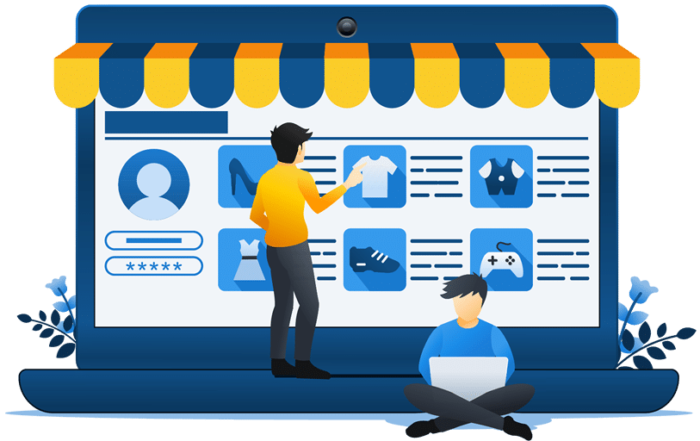
When running an online store, there are a few key things you need to focus on to make sure you make the most of your business. Driving maximum traffic to your online store, making your target audience aware of your business, and also gaining visibility for your online store, are a few things you need to work on. Advertising on multiple platforms is something you need to consider to achieve your targets.
That said, you will have to leverage online marketplaces and also the power of social media to sell. However, if you deal in a vast range of products or services, achieving your goals may turn out to be an expensive affair. To cope with this challenge, feed management has been introduced. Ever since its introduction, feed management has become fundamental and is now the future of eCommerce. We take a deep dive into the concept of feed management to better understand the concept and obtain its benefits.
What is eCommerce Feed?

When it comes to eCommerce stores, a product feed or product catalog is a structured file prepared in either CSV or XML format. This file contains the complete list of products your online store deals in, and also information on the product’s attributes. Errors are human nature, and one can easily make errors in these files that will further have an impact on your campaign.
Product feed helps in the fast loading of information when there are hundreds of products in a catalog. If you want to make the product feed a useful tool for your business, then you will have to make your file dynamic so that the data of products get updated frequently.
What is Feed Management?
Feed management refers to a process with the help of which the data and information about a product are organized, monitored, and administered for varied sales channels. Every channel contains specific rules and regulations about the appearance of information on the product feed.
This is the point where the process of feed management plays a vital role in centralizing all available feeds of a business. It also helps manage the available information to different channels. This is why this management is critical in an online eCommerce strategy. Managing and optimizing data is not only beneficial for your business but also helps enhance user experience. To get advice and tips on better feed management, visit cart.com.
Importance Of Feed Management

Product feed management enables connecting the information available about the products on different channels. This process further helps optimize the listings of products on these channels for the user to obtain correct and updated information. Also, the different channels together stay synchronized with the management process with the help of regular updates.
Now let us go over the benefits of management to have a better understanding.
- Creation of particular product feeds for specific strategies keeping in mind the specific requirements of all platforms or the distribution channel.
- Enrich, monitor, and also update wherever possible the product information simultaneously for all sales channels.
- It helps control the performance of the products and also monitors specific campaigns and sales.
Effective management is necessary to make sure that the campaigns are effectively run. This further helps in reaching the right target audience in the particular time frame and also maximizes the return on investments made for the campaigns being run.
Optimizing eCommerce Product Feed
Now we are aware that effective feed management is required to ensure the success of ads being run. There are several ways in which feed management can be optimized to increase the ROI of your campaigns.
- Optimizing Content: This refers to the information of every product that appears in the feed. For instance, you need to make sure that the product appearing on the landing page matches the title.
- Optimizing The Structure Of The Product Feed: The different fields of the product feed should match the needs which are critical for every platform. Custom or new attributes should be added too so that adequate information is provided to the channel.
- Prioritizing The Products In The Feed: If you deal with a large variety of products that are seasonal as well, make sure to add, remove or exclude the ones that are not relevant for the ongoing season. The product feed can be altered too based on the ROI obtained on each platform.
Make Your Products Found Online

When it comes to promoting an eCommerce business, digital marketers are spending more money on ads. According to the reports, Google shopping may have almost 17.3% change in the revenue of search ads, that too positively. More than half of the shoppers leverage the Google search engine to discover information about a brand, product, or even news related to these categories.
Though, accelerating one channel for an eCommerce business in today’s world is not enough to sustain itself in a competitive world. For this reason, as a business, you will have to be consistent throughout the platforms available. Users are nowadays scrolling through social media, and also navigating through hundreds of other websites to collect information.
This appears to be a great opportunity for a business to showcase its product to potential customers. This type of management helps achieve this goal. To ensure significant growth in sales, an eCommerce business should be able to catch the attention of more than one channel.
Doing so at the right place and at the right time will be the game changer. If your product listing is not reaching your potential customers, you are missing out on great opportunities. This is why you should leverage the benefits of this type of management. It helps make the multichannel opportunity for a business a huge success.
The Bottom Line
Feed management is critical for any eCommerce business, and it should be regularly managed and updated for the best results. With leveled digital selling games you can avail the maximum benefits and start reaping the best of the internet world. It will help you get full control, flexibility, and also the power to the businesses to conquer marketplaces and other channels.











